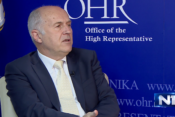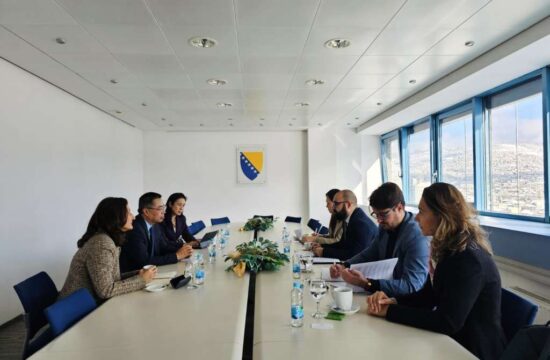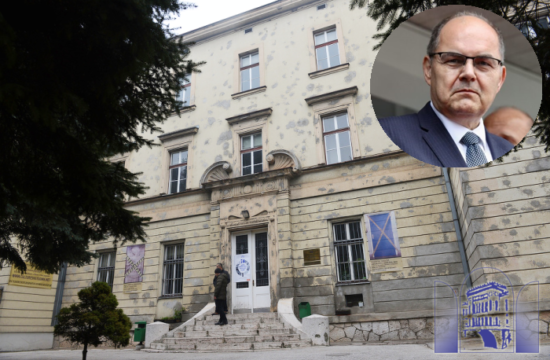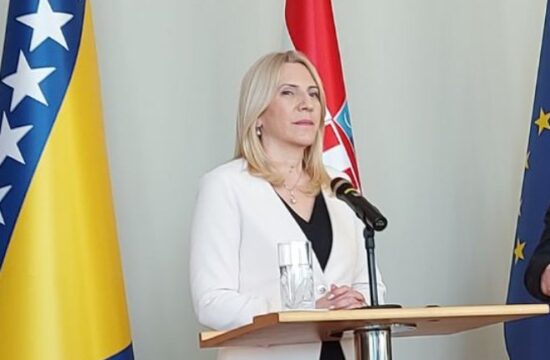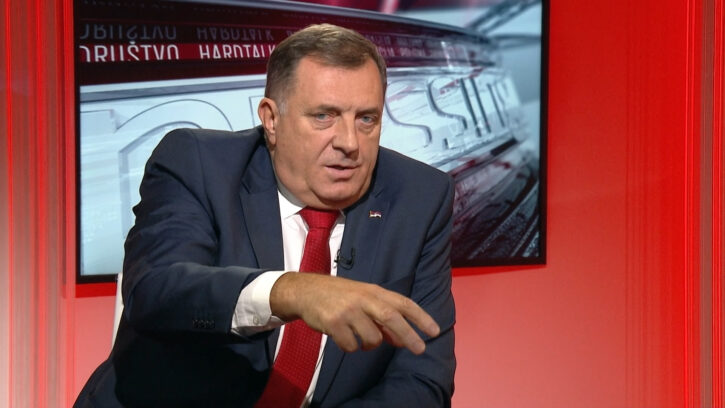
The ruling Bosnian Serb party rejects the idea of Bosnia’s international administrator imposing a law banning genocide denial, as well as an EU expert’s report on the state of the country’s judiciary, Bosnian Serb leader Milorad Dodik said on Friday.
High Representative Valentin Inzko, tasked with overseeing the civilian implementation of the 1995 Dayton Peace Agreement, told Bosnia’s public broadcaster on Thursday that his office is working on a law on banning genocide denial which he may impose if the Parliament does not pass it.
Dodik, who serves as the Serb member of the tripartite Presidency, asked whether it is necessary “to defend their truth with such imposition and violence?”
He was referring to the 1995 Srebrenica Genocide, which top Bosnian Serb officials deny.
“It was to be expected that the High Representative would stop with his unconstitutional, uncivilised and illegal behaviour,” the Bosnian Serb leader said.
High Representatives in Bosnia have a special set of powers – the ‘Bonn Powers’ – which allow them to, among other things, impose laws and fire officials.
Inzko said support for him using the powers is increasing in the international community.
According to Dodik and his Alliance of Independent Social Democrats (SNSD), the Bonn Powers are illegal. He said his party even rejects earlier decisions by past High Representatives, arguing that foreign officials imposing laws “is not in accordance with the Dayton Peace Agreement.”
“That is an international crime and violence. If Inzko has nothing else to do, he could pack up and leave. He is a disturbance here anyway,” Dodik said.
The Bosnian Serb leader also rejected a report on Bosnia’s judiciary which EU legal expert Reinhard Priebe recently presented. Dodik said it was “politically motivated” and that it “does not represent a legal report, but an attempt to discredit the Constitution of Bosnia and Herzegovina and the rights of the (two semi-autonomous) entities.”
“That is an attempt to legalise the misconduct of High Representatives and their interventions in the justice system in Bosnia and Herzegovina and for the Constitution to be harmonised with the changes which they implemented,” Dodik said, arguing that Priebe’s report does not mention anywhere that the laws past international administrators imposed are “not in accordance with the Constitution.”
This is why, according to the SNSD leader, the report can not be used as a basis for any discussions on judicial reform.
He also stressed strong opposition to establishing a supreme court in Bosnia, as Priebe’s report suggests.

